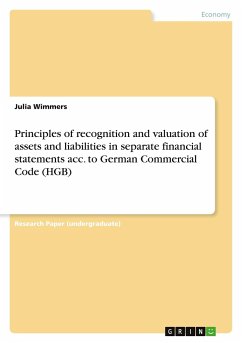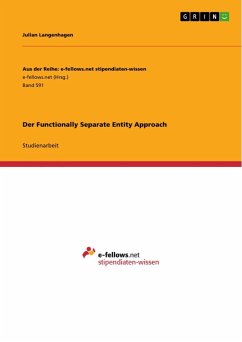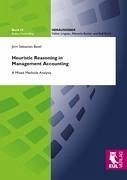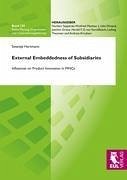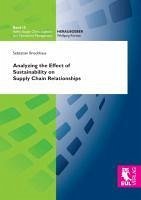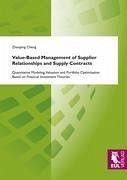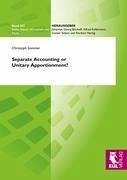
Separate Accounting or Unitary Apportionment?
The Fairy Tale of Arm's Length Pricing and General Equilibrium Analysis of Multinational Enterprise Behavior under the Formulary Taxation Alternative
Versandkostenfrei!
Versandfertig in 1-2 Wochen
58,00 €
inkl. MwSt.

PAYBACK Punkte
0 °P sammeln!
One field where the implications of the omnipresent globalization and hereby initiated new forms of cross-border business activity are exceptionally profound is the income taxation of multinational enterprises. The contemporary worldwide norm, which was adopted in the 1930s, is the separate accounting method. Despite its longevity as the preferred means for the taxation of multinational enterprises, the erosion of tax revenues from alleged transfer price manipulations by firms has goaded public discussion on whether or not the separate accounting method is still a satisfactory solution to the ...
One field where the implications of the omnipresent globalization and hereby initiated new forms of cross-border business activity are exceptionally profound is the income taxation of multinational enterprises. The contemporary worldwide norm, which was adopted in the 1930s, is the separate accounting method. Despite its longevity as the preferred means for the taxation of multinational enterprises, the erosion of tax revenues from alleged transfer price manipulations by firms has goaded public discussion on whether or not the separate accounting method is still a satisfactory solution to the problem of international income taxation. Particularly the European Commission¿s study ¿Company Taxation in the Internal Market¿ and its suggestion to replace separate accounting with unitary apportionment in the European Union has strongly accelerated the debate about the future of group taxation. In the present treatise, both abovementioned taxation concepts are elucidated as well as qualitatively and quantitatively reviewed against the background of the economic rationale for the multinational enterprise, the way it generates income and the management of its internal affairs. The highlight of this treatise is the general equilibrium model of firm behavior under unitary apportionment, which is, as will be seen, in several important respects more powerful than the usual partial equilibrium treatment of the formulary approach. The presented model, therefore, provides considerable insights regarding the tax incidence and induced real-economic distortions under unitary apportionment. Above all, this model will allow policy-makers and tax authorities to make reasonable estimates concerning potential alterations in tax revenues collected if separate accounting was replaced by unitary apportionment in the future.



